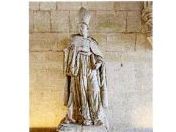Antonybatchelor's Shop
I am a retired teacher who wrote 7 photocopiable books for Teachers and one book for children Union Jack Colouring Book. The 7books covered Geography, History (Medieval/ Tudor/ Stuart), Travel and Transport, Myself and Events (this included diaries), Race Against Time Stories (SATS based), Church Dates for Children plus Nature and Seasons (including Sport). These 7 books have been mainly broken into a number of segments. Challenging the Physical Elements, my Geography book, is complete.




















